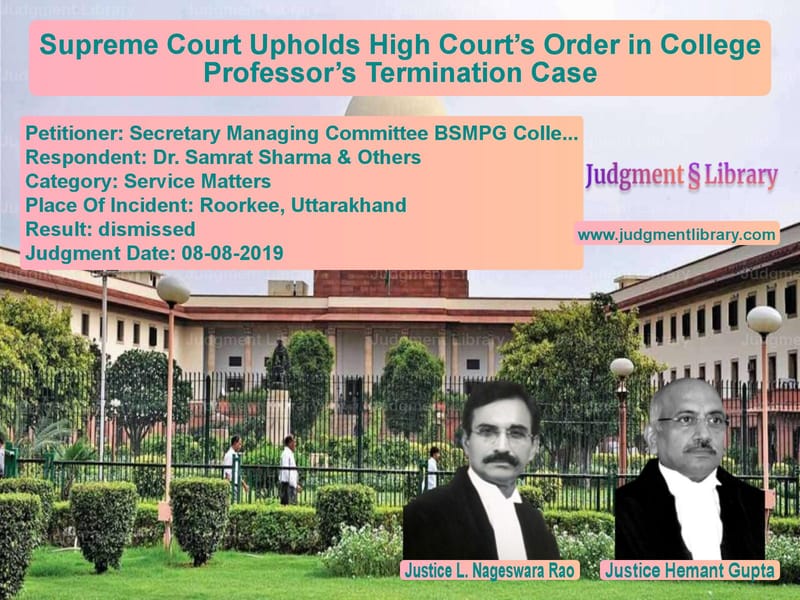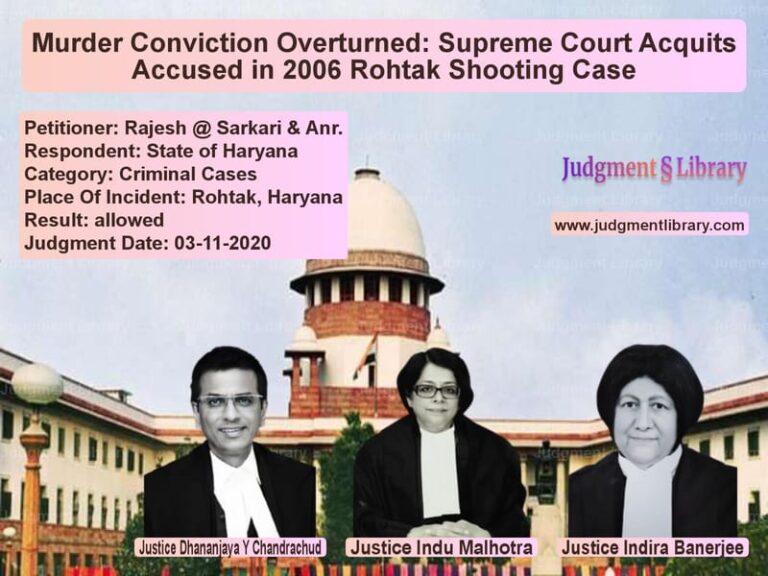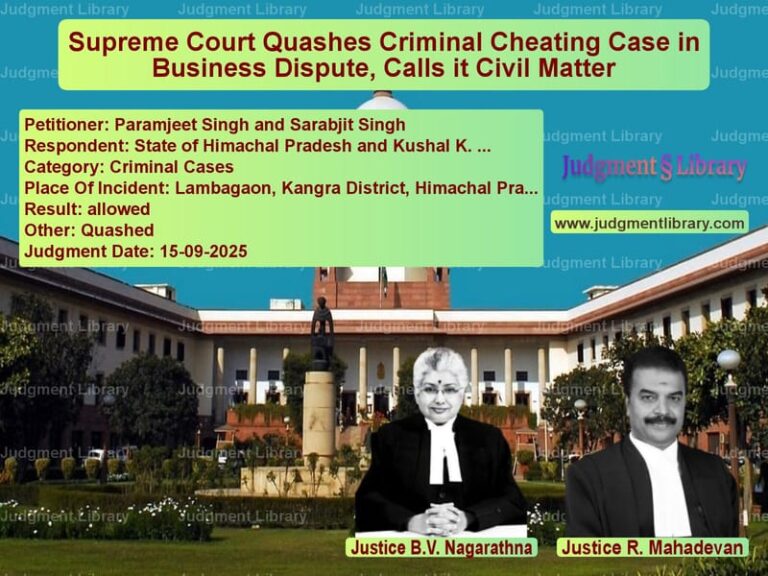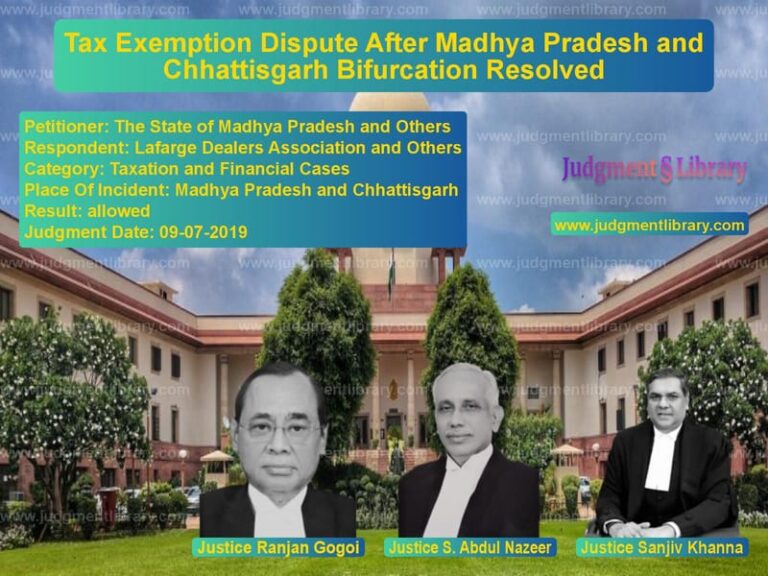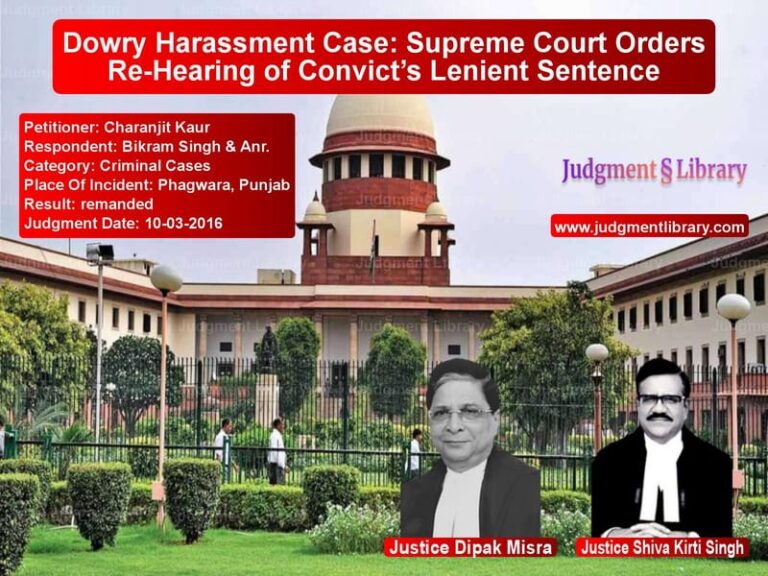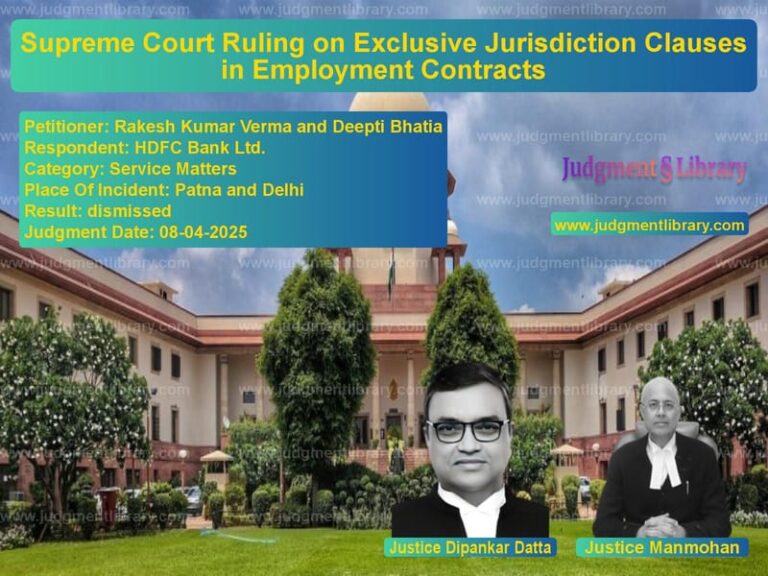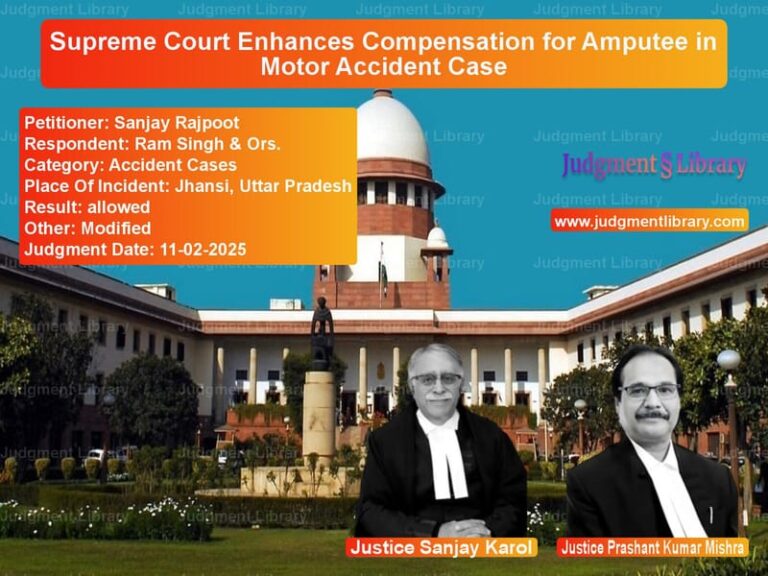Supreme Court Upholds High Court’s Order in College Professor’s Termination Case
The case of Secretary Managing Committee BSMPG College Roorkee v. Dr. Samrat Sharma & Others revolves around the termination of an assistant professor for alleged misconduct and the legal validity of the disciplinary proceedings against him. The Supreme Court was called upon to decide whether the dismissal was legally justified and if due process was followed.
The Supreme Court upheld the High Court’s decision, setting aside the termination of Dr. Samrat Sharma, but granted the college the liberty to conduct a fresh disciplinary inquiry following the correct procedure.
Background of the Case
The dispute arose when Dr. Samrat Sharma, an Assistant Professor of Hindi at BSMPG College, Roorkee, was accused of misconduct, leading to his termination. The key developments in the case were:
- On September 1, 2012, Dr. (Smt.) Kamlesh Sharma, a senior faculty member, complained to the college principal about Dr. Sharma’s alleged misbehavior during a staff meeting.
- A preliminary inquiry was conducted, and based on the findings, the college’s Managing Committee initiated disciplinary action against him.
- Dr. Sharma was issued a charge sheet on February 14, 2014, outlining accusations of indecent behavior and insubordination.
- A Fact-Finding Committee found him guilty and recommended termination of his services under Section 49(j) of the First Statute of Hemwati Nandan Bahuguna Garhwal Central University.
- A supplementary charge sheet was issued on July 2, 2014, citing additional allegations, including sending unauthorized complaints to higher authorities and forgery in financial matters.
- The disciplinary inquiry found Dr. Sharma guilty, and his services were terminated on July 13, 2014, with the Vice Chancellor granting approval on September 16, 2014.
- Dr. Sharma filed a writ petition before the Uttarakhand High Court, challenging his dismissal.
Arguments by the Appellant (College Managing Committee)
The college argued:
- Dr. Sharma engaged in indecent and aggressive behavior towards senior faculty members, warranting disciplinary action.
- The disciplinary proceedings followed the First Statute of the University, and due process was observed.
- The allegations included serious misconduct such as forgery in financial matters and insubordination.
- The High Court exceeded its jurisdiction by re-evaluating the evidence instead of reviewing the disciplinary procedure.
Arguments by the Respondent (Dr. Samrat Sharma)
Dr. Sharma contended:
- He was not given sufficient opportunity to defend himself in the disciplinary proceedings.
- The inquiry committee lacked impartiality, and the charges were framed arbitrarily.
- The disciplinary proceedings were rushed, with the final report submitted within ten days of issuing the supplementary charge sheet.
- The penalty of termination was disproportionate to the allegations.
Key Observations by the Supreme Court
The Supreme Court made the following key observations:
- Violation of Due Process: The inquiry did not adhere to the statutory requirements under the university’s First Statutes.
- Inadequate Opportunity for Defense: Dr. Sharma was not given sufficient time to respond to supplementary charges.
- Judicial Review Scope: The High Court was justified in setting aside the termination, as it identified procedural lapses.
- College’s Right to Conduct a Fresh Inquiry: The institution was permitted to restart the inquiry following the correct procedure.
Supreme Court’s Judgment
The Supreme Court ruled:
“The procedure prescribed under the First Statutes was violated while conducting the departmental inquiry. Accordingly, we affirm the judgment of the High Court by which the order of termination was set aside.”
The Court directed:
- Dr. Sharma’s reinstatement with entitlement to salary for the suspension period.
- The college may initiate a fresh disciplinary inquiry if it so chooses.
Implications of the Judgment
This ruling has significant implications for disciplinary actions in educational institutions:
- Ensures Fair Disciplinary Procedures: Institutions must follow prescribed statutes when conducting inquiries.
- Limits Arbitrary Termination: Faculty members are entitled to a fair defense before dismissal.
- Reaffirms High Court’s Oversight: Courts can intervene when procedural violations occur in employment disputes.
Conclusion
The Supreme Court’s decision in Secretary Managing Committee BSMPG College Roorkee v. Dr. Samrat Sharma highlights the importance of procedural fairness in disciplinary inquiries. While it does not exonerate Dr. Sharma, it ensures that disciplinary actions comply with legal and statutory requirements.
The ruling sets an important precedent for educational institutions and service law, balancing the rights of employees with the authority of management committees.
Petitioner Name: Secretary Managing Committee BSMPG College Roorkee.Respondent Name: Dr. Samrat Sharma & Others.Judgment By: Justice L. Nageswara Rao, Justice Hemant Gupta.Place Of Incident: Roorkee, Uttarakhand.Judgment Date: 08-08-2019.
Don’t miss out on the full details! Download the complete judgment in PDF format below and gain valuable insights instantly!
Download Judgment: Secretary Managing C vs Dr. Samrat Sharma & Supreme Court of India Judgment Dated 08-08-2019.pdf
Direct Downlaod Judgment: Direct downlaod this Judgment
See all petitions in Termination Cases
See all petitions in Disciplinary Proceedings
See all petitions in Employment Disputes
See all petitions in Judgment by L. Nageswara Rao
See all petitions in Judgment by Hemant Gupta
See all petitions in dismissed
See all petitions in supreme court of India judgments August 2019
See all petitions in 2019 judgments
See all posts in Service Matters Category
See all allowed petitions in Service Matters Category
See all Dismissed petitions in Service Matters Category
See all partially allowed petitions in Service Matters Category

